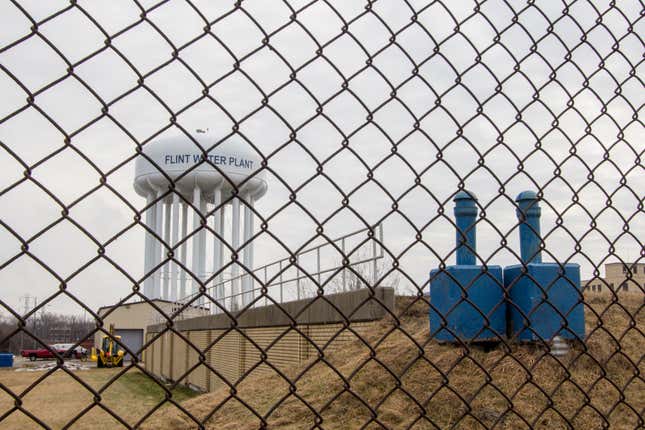
It looks like funds to Flint, Michigan are ever so slowly making their way to the city’s residents. Last month, a federal judge approved a partial settlement of $626.25 million dollars, an amount some feel is entirely inadequate to make up for the everlasting impact of the water crisis.
The onset of the crisis was sparked in 2014 by government officials seeking a cheaper route to provide water to residents. The state’s governor, Rick Snyder, decided to switch its main source from Detroit Water and Sewage to the Flint River, a body of water that had already been proven as unsafe, with the potential to expose residents to high risk contaminants. Shortly after the switch was made, there were reports of residents becoming ill, and later began to develop diseases such as Legionnaires’ disease, as well as suffer miscarriages and male fertility issues.
Founder of Black Millennials 4 Flint, LaTrecia Adams, is speaking out against the offer, stating that the government settlement is simply not enough to sustain long term care for those who will continue to suffer from ailments.
“This is a slap in the face,” Adams stated to NBC News. “With the settlement, it didn’t take into consideration public health or the social determinants of health. There should have been Medicaid access, Medicare access, for the remainder of people’s lives in Flint. There are irreversible damages done to people in Flint.”
Although more funds may later be distributed, as of right now, the settlement will release 80 percent of the current settlement to those age 6 or younger at the time of initial exposure. 18 percent will fund restoration of property damaged, and 2 percent will be distributed to special education services throughout the county.
Organizations like Black Millennials 4 Flint have been supporting residents for years and plan to launch a number of new initiatives in 2022, as it becomes evident that ongoing physical and mental health won’t be wanded away with little effort.
“We recognize no amount of money will undo the harm created by the crisis, nor the hardship that continues for the city,” said Lynsey Mukomel, press secretary for Michigan Attorney General Dana Nessel. “That said, we were encouraged to see that more than half of Flint’s population registered for the settlement, which was negotiated tenaciously over 18 months to reach a historic outcome. We are proud of this settlement and the positive step it adds to Flint’s healing process.”
According to the U.S. Census Bureau, the city of Flint is over 50% Black, with 39% of the population living in poverty, and the water crisis has only worsened economic conditions.
Henry Taylor, director of the Center for Urban Studies at the University at Buffalo School of Architecture and Planning says that money needs to be invested and recirculated more consciously into the community in order for cities like Flint to become prosperous.
“There’s never been a moment in American history when Black people have not lived in underdeveloped neighborhoods like Flint,” Taylor said. “You got to change the neighborhoods in order to change the other outcomes.”
So while the powers that be make the final determinations as to the whos, whats whens of it all, the people of the city will continue standing in the gaps, and supporting one another as they have been.

